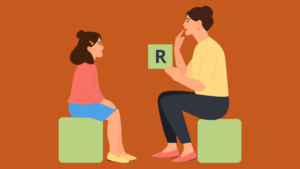Socratic Discussion for ESL Classes
Students love to talk. It’s usually a classroom occurrence that a teacher wants to curb but there are times when talking in the classroom can be harnessed for deeper learning. While there are many ways to teach a lesson, I have found that adding at least a day or two of organized Socratic discussion to a unit not only gives my students a voice but it helps them to learn from each other and dive deeper into the material. Socratic discussion helps engage students and helps them to become more eloquent speakers but also more active listeners.
So What Is Socratic Discussion?
Socratic discussion is not as simple as standing in front of a classroom and saying, “So, what did you think? Okay guys- talk.” The beauty of Socratic discussion is that it is both open-ended and specific. In a Socratic discussion, the leader of the discussion (the teacher) asks open-ended questions based on a particular text. Students listen to the comments of their peers and in doing so think critically about the text and articulate their own ideas. The text is referred to frequently, sometimes is directly quoted, as the discussion goes on. The goal is to get the students to start by answering questions in a more general way but to lead them to more specific, evidence (text-based) analysis as the discussion progresses.
For example, I was engaged in a Socratic discussion with my high school seniors the other day on Kafka’s Metamorphosis. I began the discussion by asking students, “Based on the novella you just read, what is Kafka’s view of modern society?” The discussion started out pretty general.
“He doesn’t approve of it,” one student said.
“Why?” I asked.
“Gregor is only liked by his family because he’s the financial provider,” one student replied.
“It shows that people are only valued by how much money they can make,” another continued.
“I agree,” yet another student said. “Kafka is critiquing Industrialism and Capitalism when he shows the family’s reaction to Gregor being unable to work. Like the way his father treats him when he’s locked in the room and not being fed.”
“It’s a parallel to being disabled or chronically sick,” another student went on.
With one little question, “why” the students came to many points on their own. The best part of the discussion was that I, as the teacher, said very little, and yet everything we had learned in our pre-reading and our analysis of the text thus far came back in our discussion. This was only one question among many that drew numerous thoughtful responses.
So There Could Be Some Drawbacks (But You Can Fix Those)
One of the criticisms of employing Socratic discussion in a high school, or even middle school classroom is that it allows lurkers, students who just sit back and listen, or worse, don’t listen, to coast while only the very vocal really participate. One of the challenges of employing Socratic discussion in a classroom is getting all the students involved. The best way to do this is to employ stakes.
Yes, cold calling on students who look like they might not be paying attention is a way to draw students in. It’s also a way to tell all students that they won’t simply be allowed to lurk in a discussion, making it more likely all students will come prepared. But sometimes if students are not being graded, or at least doing written work as well, they might not see the stakes. This also shows students that we’re not just talking, we’re talking with a purpose.
Ways To Deal With Those Drawbacks (And Create a Better Lesson)
Having each student formulate a thoughtful question to present to the class ensures active participation from all students. Additionally, each student must devise an answer to their posed question and justify in writing why it contributes to the discussion. This process demonstrates that students have analyzed not only the answer to the question but also the question itself. Typically, students send these questions to me ahead of the discussion, enabling me to critique their questions and assign points, as I would for any written assignment.
Another way to make sure all students participate in the discussion is to ask them to take notes. I then collect their notes to critique and grade. This assures me that all students are paying attention to the discussion when they’re not talking. I also ask students, in their notes, to come up with three to five questions that the discussion generated in their minds. This allows students to truly reflect on the discussion.
Another hurdle a Socratic discussion might face is a large class size.
Another hurdle a Socratic discussion might face is a large class size. Sometimes a class is just too large to get everyone talking. In these cases, I employ panel discussions where a group of students, usually seven to twelve, are set up in front of the classroom, panel style. They are asked to participate in a discussion, moderated by myself, or for more advanced classes, by a fellow student, for a set period of time while the rest of the class takes notes. At the end of their time the larger class may ask questions of the panel. We then move on to a new panel with different students and different questions.
At The End Of The Day, It Helps Our Students Be More Confident
While there are many learning outcomes associated with Socratic discussion like deeper analysis and critical thinking, Socratic discussion helps students become better thinkers, readers and writers. “Socratic Seminars are a great ways to get students thinking deeply before a larger writing assignment. Many students benefit from talking through their ideas before they write,” Mari Venturino of Kidsdiscover.com says.
I find that one of the largest benefits I have seen is the confidence boast these discussions give students. Socratic discussions tell a student, “We are going to listen to you because your ideas matter.” I will always remember a parent who came up to me at a conference. He said, “I want to thank you for all the talks you have in class. It’s really boosted my daughter’s confidence. She talks so much more to us about what goes on in her life. She even talks about stuff in school and things she sees on the news now.” All students have ideas and opinions about the things they’re learning and Socratic discussion is a great way to help them express them.




